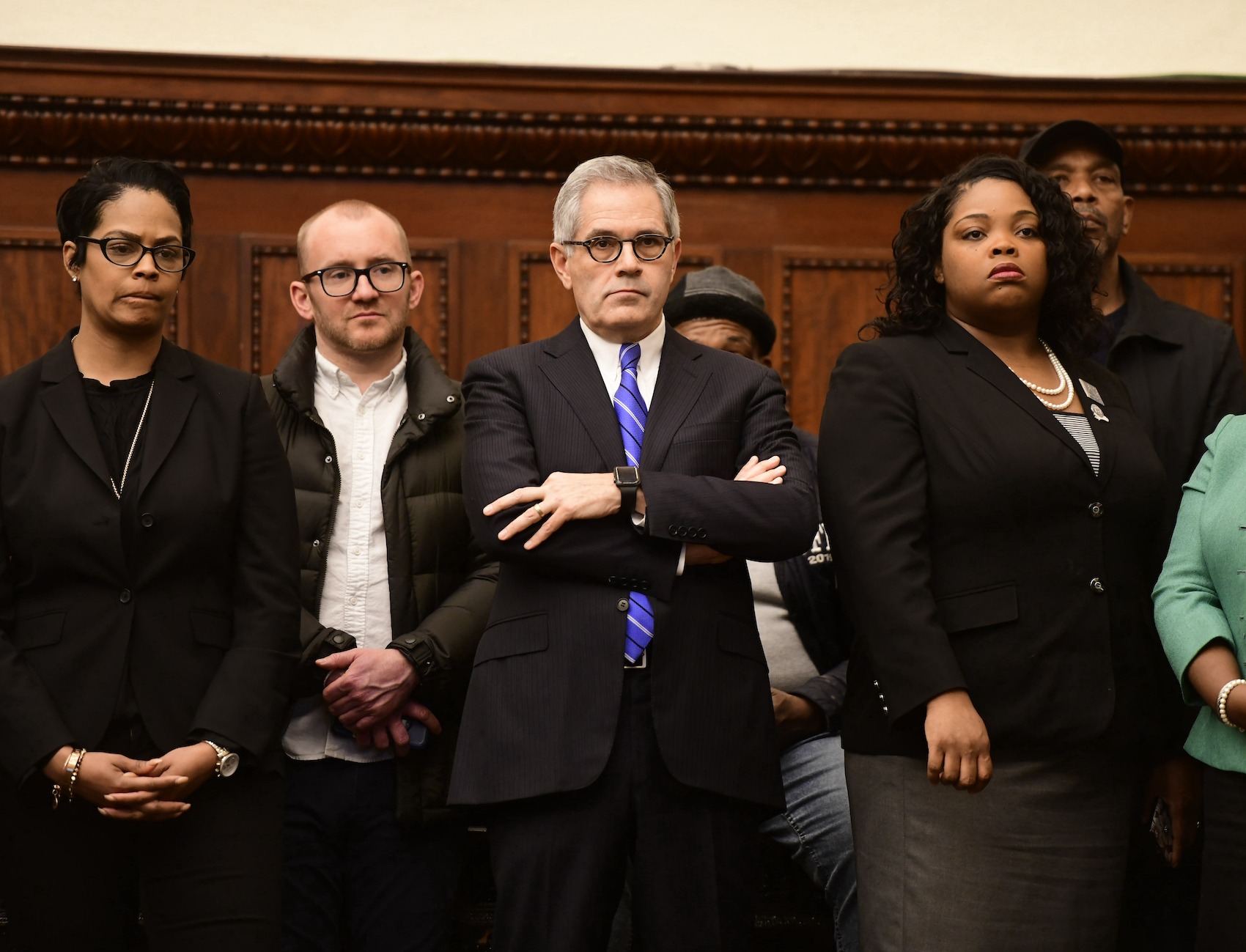Prosecutors Need Conviction Integrity Units That Work
Over the past 32 years, more than 2,500 people have been exonerated—many of whom were convicted because of police or prosecutorial misconduct. Prosecutors have a responsibility to meaningfully review claims of innocence and swiftly correct those injustices.

The Point
Over the past 32 years, more than 2,500 people have been exonerated—many of whom were convicted because of police or prosecutorial misconduct. Prosecutors have a responsibility to meaningfully review claims of innocence and swiftly correct those injustices.
Prosecutors should seek justice, not just convictions:
- Prosecutors should establish conviction integrity units (CIUs) that are well-resourced, independent, flexible, and transparent. They should use their unfettered access to case files and evidence to investigate every potentially meritorious claim of innocence brought to their attention, even if the conviction came from a guilty plea.
- Prosecutors should staff CIUs with people who have diverse backgrounds and experiences and are committed to working with defense organizations and members of the post-conviction legal community to establish best practices.
- All prosecutors—not just local district attorneys—need effective CIUs, or similar efforts, to address wrongful convictions. Some attorneys general have set up conviction integrity units, though none have resulted in an exoneration so far. That may be due to unnecessary barriers, like only reviewing claims based on entirely new evidence, which should be eliminated.
- Prosecutors should routinely evaluate the work of their CIUs to make sure they are working. Too many established CIUs have failed to exonerate a single person since their creation. As Josie Duffy Rice explained in The Appeal, “The mere fact that a CIU exists means very little — several have accomplished nothing. In fact, of the 33 offices listed in the [2018] report, 12 of them have never exonerated a single person. Another five offices have exonerated only one.”
Prosecutorial misconduct and obstruction have stolen decades of freedom from people:
- “The role of a prosecutor is to do justice, not reflexively defend convictions even if they violate the Constitution, incarcerate the innocent, and reward misconduct by government officials,” explained Lara Bazelon in a report for The Appeal Lab.
- More than half of wrongful convictions involve official misconduct by either police or prosecutors. One notable example is the case of Orlando Maisonet, who was exonerated in 2019. Maisonet’s lawyers argued that the prosecutor in his case, Roger King, “presented false evidence, withheld relevant evidence from defense lawyers, and failed in his obligation to notify the court of possible perjured testimony,” according to reporting by The Philadelphia Inquirer. The judge agreed and vacated Maisonet’s conviction, ultimately leading to his release.
- Prosecutorial opposition to innocence claims means innocent people spend even more time behind bars. By arbitrarily opposing requests for DNA testing, filing appeals when convictions are overturned, and seeking new trials when innocence is clear, prosecutors exacerbate the severe harm the system has already wrought.
Dive Deeper
- How State Attorneys General Can Lead On Reform. This Lab explainer details five ways state attorneys general can pursue reform and push statewide policy forward, including by addressing wrongful convictions.
- Defending The Conviction Integrity Unit In St. Louis. Forty-three elected prosecutors from around the country filed an amicus brief in support of the work of St. Louis Circuit Attorney Kim Gardner and her office’s conviction integrity unit as a judge pushed back against her efforts to vacate Lamar Johnson’s conviction.
- Prosecutors Can Right Past Wrongs If Only The System Lets Them. More prosecutors are trying to root out wrongful convictions and restore trust in the legal system. They’re meeting opposition on all sides.

